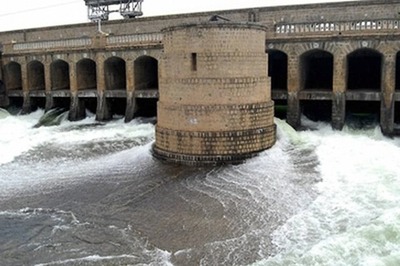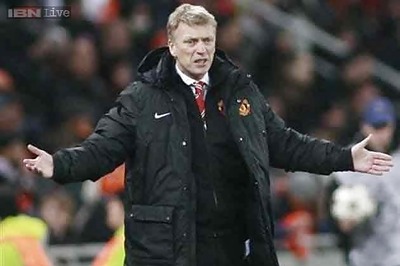
views
WASHINGTON: When followers of President Donald Trump stormed the U.S. Capitol two weeks ago, countries with questionable democratic track records seemed to relish the chance to denounce the United States.
“Yesterday’s events showed that the U.S. has no moral right to punish another nation under the guise of upholding democracy,” tweeted Zimbabwe’s president, Emmerson Mnangagwa, calling for Washington to end “painful” economic sanctions it imposed over human rights and rule of law concerns.
While unlikely to convince the world, the barbs from Harare – and other capitals antagonistic to Washington – underscore the fragile state of America’s global reputation https://www.reuters.com/article/us-usa-trump-legacy-analysis/analysis-trumps-legacy-a-more-divided-america-a-more-unsettled-world-idUSKBN29O15W as Joe Biden is sworn in as president on Wednesday.
Trump, who for months made false claims that the Nov. 3 election was stolen from him, encouraged his supporters to march on the Capitol while lawmakers were certifying Biden’s victory. A riot led to the evacuation of the building and five deaths.
“Let us not be naive that a lot of damage has been done to the American image for the last four years, and more specifically, what happened,” on Jan. 6, said David O’Sullivan, former European Union ambassador to Washington.
Biden, vice president under Barack Obama and a former senator with decades of foreign policy experience, has pledged to repair tattered strategic alliances, while also attempting to re-establish U.S leadership on climate change and take a more prominent role on the global response to the coronavirus.
But veteran diplomats and foreign policy experts said a sharply divided American society – one at risk of political violence – will make Biden’s job harder and distract from the hard work of restoring U.S. leadership.
Biden’s transition team believes the Capitol violence underscores one of his main messages before taking office: that U.S. domestic and foreign policy cannot be fully separated.
‘DOUBLE STANDARDS’
Biden has said he will recommit the United States to NATO and assemble leaders of democracies within his first year to counter rising authoritarianism around the world.
But U.S. diplomats are likely to face cries of hypocrisy when they call out governments for failing to uphold democratic norms.
“It’s going to weaken the American word,” said Gerard Araud, a former ambassador for France in Washington. “Every time they will try to lecture the world … there will be people who are going to try to drag them down to the reality. It will be used by the bad guys.”
After the scenes at the Capitol, the Chinese Communist Party-run Global Times newspaper lashed out at what it described as “double standards” among U.S. politicians who praised pro-democracy protesters in Hong Kong.
The Biden transition team has stressed that his administration will work with allies to stand up for universal values and principles and democratic rights.
Tony Blinken, a Biden confidant whom he nominated to become secretary of state, told Congress on Tuesday the United States needed both “humility and confidence” in dealing with the world.
“Humility because we have a great deal of work to do at home to enhance our standing abroad. And humility because most of the world’s problems are not about us, even as they affect us,” Blinken said in prepared testimony. “Not one of the big challenges we face can be met by one country acting alone – even one as powerful as the U.S.”
‘LANDMINES’
Biden foreign policy officials will be inheriting several immediate challenges thanks to U.S. Secretary of State Mike Pompeo, who laid “landmines” on his way out that could box Biden in, said Heather Conley, a former State Department official at the Center for Strategic and International Studies.
For instance, the Trump administration has been piling on sanctions related to Iran and Pompeo on Jan. 10 designated Yemen’s Houthis as a foreign terrorist organization, moves that seemed designed to make Biden’s goal of reviving the 2015 nuclear deal with Tehran more difficult.
Similarly on China, Pompeo has unleashed one sanctions package after another and lifted restrictions on U.S. contacts with Taiwan, an apparent attempt to lock in a tough approach to China before Biden’s inauguration. On his last full day in office, Pompeo determined that China’s repression of Uighur Muslims in Xinjiang amounted to “genocide”, delivering a massive parting shot to Beijing.
Blinken told the Senate Foreign Relations Committee on Tuesday that he agreed with Pompeo’s assessment.
As long as the U.S. domestic political discourse remains bitterly divided, any attempts to reverse Trump administration policies will be viewed with caution.
Washington’s allies increasingly see U.S. foreign policy coming in two or four-year cycles contingent on domestic politics, said Brian Katulis, who works on national security at the Center for American Progress.
“That won’t be easily fixed as long as Republicans and Democrats continue to tear each other apart over national security questions like China and Iran,” he said.
Disclaimer: This post has been auto-published from an agency feed without any modifications to the text and has not been reviewed by an editor
Read all the Latest News, Breaking News and Coronavirus News here




















Comments
0 comment